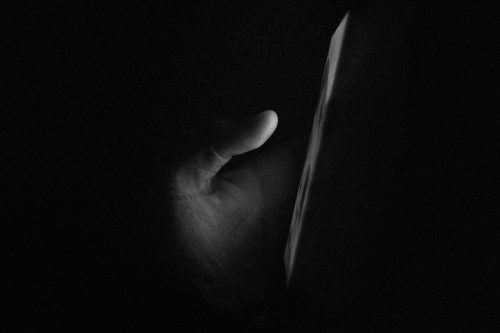Nobody asks for interruptions.
Yet the media and “influencers” constantly interrupt our lives.
They pepper podcasts with penile-pill promotions.
They sandwich shows with silly sales spiels.
They inundate Instagram with idiotic iconoclasms.
(Okay, that last one was a stretch, but you get the point.)
Enough with the ads.
Nobody wants them.
Not the creators.
Not the consumers.
Not the community.
Yet advertisements are everywhere:
radio and television and billboards,
podcasts and pop-ups and product placements,
sponsored content and banner ads and social-media feeds.
Here. There. Everywhere!
Seizing our attention.
Aggregating our eyeballs.
Influencing our behavior.
You’ll experience upwards of 10,000 advertisements today.
That’s 10,000 interruptions before your head hits the pillow tonight.
No wonder it’s so difficult to focus on anything meaningful.
Commercial interruptions have become a normal part of our lives.
But they aren’t normal. They’re propaganda. Literally.
In Spain, they call advertising la propaganda.
While a name change doesn’t make any interruption more welcome,
at least the honesty is refreshing.
Even the “content creator” who’s making money from YouTube ads,
even they don’t want to clutter their creations with commercials.
But they do it anyway because, as Upton Sinclair once said,
“It is difficult to get a man to understand something
when his salary depends on his not understanding it.”
Or, maybe the comedian Bill Hicks got to this truth more directly:
“[If] you do a commercial, you’re off the artistic roll call forever.
End of story, okay?
You’re another corporate shill,
you’re another whore at the capitalist gangbang,
and if you do a commercial…
everything you say is suspect.”
Yikes!
So we lie to ourselves:
It’s just an ad—what’s the big deal?
Well.
Besides what Hicks has expatiated, perhaps the biggest problem facing our personal lives and political landscape today is the ubiquity of advertisements.
They disturb the peace.
They make us feel inadequate.
They encourage overconsumption.
They indoctrinate our kids.
They promote outrage.
They sway elections.
They fuel fake news.
They lack sincerity.
They persuade people to go into debt,
to buy things they don’t need.
But we rarely talk about these problems; consequently, we don’t recognize the gravity of the situation.
To make matters worse,
when a creator is beholden to advertisers—
be it a podcaster, writer, or YouTuber—
they lose their freedom
because their words are no longer their own;
they are constrained by corporatized craving.
Selling ads is like going into debt,
except with your freedom.
This is why The Minimalists remains 100% advertisement-free.
With an audience our size, it would be easy to “sell out”—
to bend our values for seven figures—
but what use is a million dollars if you lose your freedom?
A plush prison cell is just as incarcerating as a concrete box.
Perhaps more so—because it’s more difficult to leave.
So.
We refuse to graffiti our website for cash.
We refuse to bow to the whims of a corporate overlord.
We refuse to interrupt your day for the 10,001st time.
We refuse to make a mess of our podcast or YouTube channel.
Because let’s be honest: advertisements suck!
To be clear, ours is not a moral stance—it’s a deliberate choice.
Filling our creations with ads
would be like loading our lawn with yard signs.
It’s not immoral, but it’s tasteless, so we’re going to avoid it.
P.S. Yes, it’s true that there are a handful of wise people who view advertising in a thoughtful way—Seth Godin, Dave Ramsey, and Derek Sivers come to mind—but their approach requires a level of intention that almost no one is willing to practice in their own marketing efforts.

